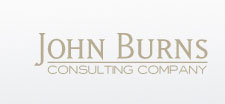 HOME
| ABOUT JBCC | SERVICES
| CASE STUDIES | JOHN BURNS
| NEWS & MEDIA | RESOURCES
| CONTACT US
HOME
| ABOUT JBCC | SERVICES
| CASE STUDIES | JOHN BURNS
| NEWS & MEDIA | RESOURCES
| CONTACT US CTA Urged to Sell Some of its Names
Is a Tombstone ‘L’ in our transit future?
July 14, 2005
BY Virginia Groark, Tribune Staff Reporter
First came the United Center. Then there was U.S. Cellular Field. Next could be a Chicago Transit Authority elevated train line named after a corporation.
That’s one of several suggestions a consultant made to the CTA board Wednesday as part of an ongoing study to identify ways to cut costs, streamline operations and raise revenue.
The presentation was made shortly before the board voted to rescind service cuts and fare increases that were scheduled to take place this month to fill a $55 million budget hole. The CTA cancelled the doomsday scenario after the Regional Transportation Authority agreed last month to give it $54.3 million in state funds.
CTA Chairwoman Carole Brown warned the state funds provide only a temporary fix and in the coming months the board will start discussing similar budgetary woes for 2006. Preliminary projections indicate next year’s budget deficit could be as much as $100 million.
Meanwhile, the CTA hired the consulting firm AECOM in March for $1.2 million to analyze its operations.
Among other recommendations, AECOM Vice President Scott Baker suggested ways to schedule workers to increase workforce productivity, proposed outsourcing real estate management and adding more automated teller machines along its system. The CTA agreed Wednesday to add another 31 ATMs.
The CTA should also more aggressively seek out advertising revenues, whether by selling corporate sponsorships of train stations or selling advertising space on the side of buildings it owns that are near major thoroughfares, Baker said.
Baker also said the CTA could seek corporate sponsorships of entire rail routes.
The CTA did not immediately embrace the suggestion, saying they needed to determine how much money it could generate.
“I think that what’s being said is these are things that need to be explored further, and that’s the whole point of this review,” CTA President Frank Kruesi said.
The CTA wouldn’t be the first transit agency to undertake such an effort. In Tampa, the TECO Line Streetcar System is named after a utility company. The line also offers opportunities for sponsorships of stations and individual streetcars.
Naming rights for mass transit systems presents an excellent marketing opportunity, said Eric Smallwood, Vice president of Pennsylvania-based Front Row Marketing Services, which was involved in a deal to have an Italian food products company sponsor a Tampa streetcar.
A newspaper company, for example, could sponsor a rail route and then negotiate to have only its newspaper boxes in stations along that line, Smallwood said.
“All those commuters, that’s a great opportunity,” he said.
From an operations standpoint, it may not make sense, said David Schulz, executive director of the Infrastructure Technology institute at Northwestern University. The CTA renamed its lines after colors more than a decade ago and to change the names again could confuse people.
“A significant barrier to people using public transportation is that they simply don’t know how to use it,” Shultz said. “You start changing route names and it introduces another variable in there.”
“I think you run the risk, that the Charter Bank Line or whatever it would be, the Sara Lee Line, runs the risk of people not being able to deal with it,” he said.
In addition, some people may be offended by having a rail route named after a corporation.
“I think people at some point say enough is enough,” Shultz said. “And my guess would be, my personal sense would be, that you’ve gone over that line if you start renaming whole CTA lines for companies.”
Copyright Chicago Tribune